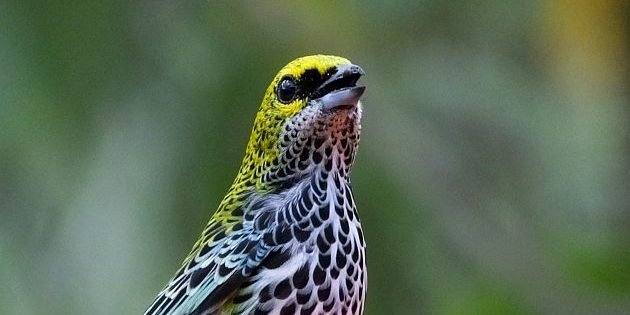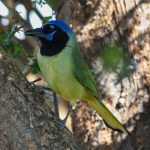Though the idea that mimics learn their sounds from other species might seem painfully obvious (why else call them mimics?) the theory had not been tested, at least not extensively. But university researchers studying bowerbirds have figured out that they do, indeed, learned by listening directly to other species, and not from other bowerbirds. Now the questions become ‘Why don’t mimics learn from each other?’ and ‘Is there an evolutionary advantage to not teaching one’s own young a species-specific song?’
Recent Posts
 Netherlands – Profile for BirdersBy Peter
Netherlands – Profile for BirdersBy Peter Birding Port Meadow, OxfordBy Luca
Birding Port Meadow, OxfordBy Luca Photogenic Birding in San Vito, Costa RicaBy Patrick O'Donnell
Photogenic Birding in San Vito, Costa RicaBy Patrick O'Donnell Farewell to ArmsBy David T
Farewell to ArmsBy David T Hannah and Erik Go Birding: Rio Grande Valley Birding Festival 2025By Hannah Buschert
Hannah and Erik Go Birding: Rio Grande Valley Birding Festival 2025By Hannah Buschert Species Spotlight: Bearded Bee-eaterBy Kai Pflug
Species Spotlight: Bearded Bee-eaterBy Kai Pflug An Interview with Bo Beolens of the Fatbirder birding siteBy Editor
An Interview with Bo Beolens of the Fatbirder birding siteBy Editor
Posting Calendar
| DAY | WRITER(S) | SERIES (weekly) |
|---|---|---|
| MON | Kai (w) | Birding Lodges |
| TUE | Donna (m) Susan (m) Hannah (m) Fitzroy (m) Grace (m) | Bird Guides |
| WED | Leslie (bw) Faraaz (bw) | Ask a Birder |
| THU | Paul (w) Cathy (bw) | Birder’s Lists |
| FRI | David (w) | Species Spotlight |
| SAT | Peter (bw) Luca (bw) | From the Archives |
| SUN | Clive (w) Sanjana (m) | Three Photos |
| w weekly, bw biweekly, m monthly | ||
| Any time: Jason, Mark, John, Sara, Rolf, Dragan | ||
See here for info on the writers.
Newsletter
Signup and receive notice of new posts!
Thank you!
You have successfully joined our subscriber list.






It seems to me that there might be an evoluntary advantage to learning as many unique sounds as possible. If you can spend the time to learn, you must be in good condition, which might translate into your relative fitness as a potential mate. A form of sexual selection, or at least my pet theory.